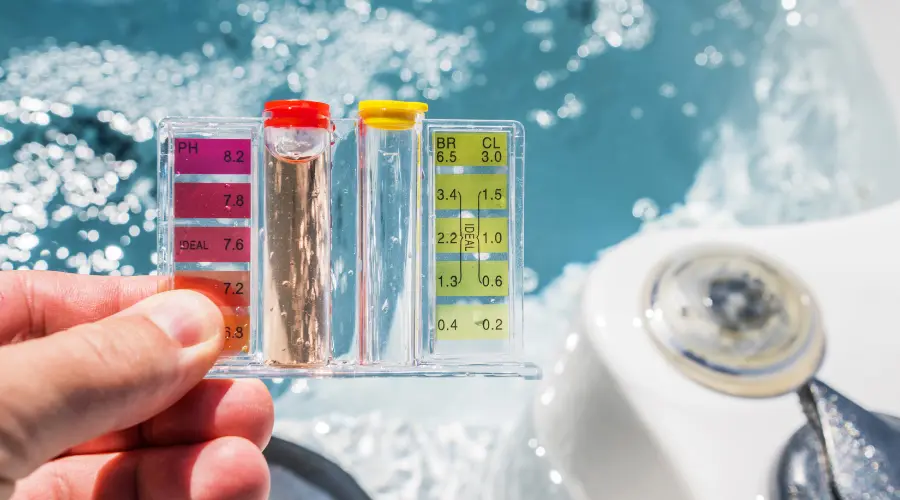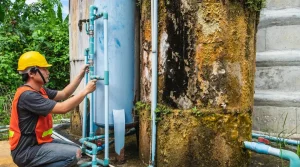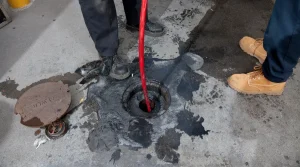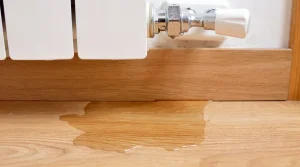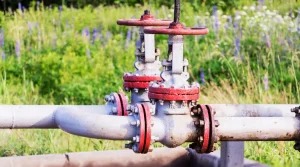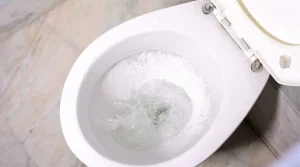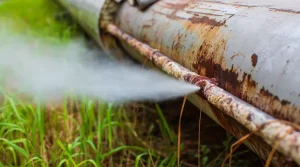New Jersey’s water quality challenges, including lead contamination and PFAS presence, necessitate informed decisions on effective filtration methods to ensure safe drinking water.
Key Takeaways
- Lead Contamination: A significant concern in New Jersey, particularly in older infrastructures, leading to potential health risks.
- PFAS (“Forever Chemicals”): Persistent environmental pollutants found statewide, associated with various health issues.
- Effective Filtration Methods: Reverse osmosis and activated carbon filters are among the recommended solutions to address these contaminants.
Understanding Water Quality in New Jersey
New Jersey’s water quality varies due to diverse sources and aging infrastructure. While utilities strive to meet safety standards, issues like lead contamination and PFAS (“forever chemicals”) persist, posing health risks.
Lead Contamination: A Pressing Concern
Lead contamination remains a critical issue in New Jersey, particularly in older communities with aging infrastructure. The Newark water crisis, beginning in 2016, highlighted the severity of this problem. Elevated lead levels were detected in multiple Newark Public Schools, leading to widespread concern and intervention.
Lead exposure can cause learning disabilities, behavioral problems, and at very high levels, seizures, coma, and even death. Children and pregnant women are especially vulnerable, with no safe blood lead level identified.
PFAS: The Ubiquitous “Forever Chemicals”
Per- and polyfluoroalkyl substances (PFAS), commonly known as “forever chemicals,” are synthetic compounds resistant to degradation, leading to their accumulation in the environment and human bodies. These substances have been linked to serious health issues, including cancer and developmental disorders. A recent article by Mark Ruffalo emphasizes the widespread presence of PFAS across the U.S., highlighting the need for immediate action to protect public health and the environment.
Effective Water Purification and Filtration Methods
Addressing contaminants like lead and PFAS requires effective water purification and filtration methods. Here are some of the most effective options:
- Activated Carbon Filters: These filters are excellent for removing chlorine, volatile organic compounds (VOCs), and some PFAS. They are commonly found in pitcher filters and under-sink systems.
- Reverse Osmosis (RO): RO systems provide comprehensive filtration by removing many contaminants, including lead and PFAS. They work by forcing water through a semi-permeable membrane that filters out impurities.
- Distillation Systems: These systems use heat to produce steam, which condenses into liquid and removes impurities. Distillation effectively removes many pollutants, including heavy metals and certain chemicals.
- Whole-House Filters: Whole-house filtration systems treat all the water entering your home for complete protection. These systems often combine multiple filtration methods to address various contaminants.
Determining the Most Effective Filtration Method
The most efficient filtration method depends on the specific contaminants in your water. Reverse osmosis systems are generally effective for addressing various issues, including lead and PFAS. However, if you are mainly concerned with chlorine and sediment, activated carbon filters may offer a more affordable and adequate solution.
Frequently Asked Questions
- How do I find out if my water contains lead?
A recognized laboratory can test your water for lead contamination. Many water utilities also provide annual water quality reports that include lead-level information. - Is a water filter necessary if I use bottled water?
Bottled water may be less environmentally friendly and more costly than filtered tap water. Additionally, it does not always guarantee purity. A water filter offers a cost-effective and consistent solution for clean, safe water. - How often should I replace my water filter?
Replacement frequency varies by filter type and usage. Activated carbon filters typically need replacement every 6 to 12 months, while reverse osmosis membranes may last 2 to 3 years. Always follow the manufacturer’s guidelines. - Can water filtration systems remove all contaminants?
No single filtration system can remove all contaminants. A combination of methods may be necessary for comprehensive protection. Choose a system based on the specific contaminants present in your water supply.
Conclusion
Ensuring clean, safe water in New Jersey involves understanding local water quality issues and selecting the proper filtration methods. With challenges like lead contamination and PFAS, adequate filtration is crucial. By choosing the appropriate system and staying informed, you can safeguard your well-being and experience tranquility. Investing in the right water filtration system enhances your well-being and contributes to a safer, healthier environment for your family and community.
Contact BJC Plumber North Bergen
For any service inquiries or emergencies, contact BJC Plumber North Bergen. We are happy to address your family plumbing issues and provide advice over the phone prior to our visit. If you only need a few minutes of free guidance, we’re here for that too. Our aim is to be prompt and professional, ensuring strong relationships through attentive and reliable service.

